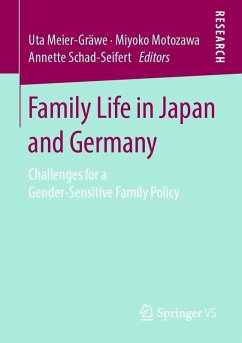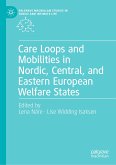This volume addresses the family situation in Japan and Germany. Gender-segregated labor markets and precarious employment patterns bear detrimental consequences for the socioeconomic capacity to maintain family households and to have children. By applying a gender-sensitive approach, this volume's focus is on the impact of family law, family policy, and family support measures. Scholars from Japan and Germany examine differences and characteristics of social security legislation, intergenerational support systems, single-parent families, inequality among households and poverty situations, local domestic and care service provision, female labor market participation, parental leave systems, organization of child care, domestic violence, historical developments of housework as an institution, and labor market policies.
Contents
- Gender-sensitive analysis of the family situation in Japan and Germany
- Comparative studies of family policy, welfare and social security institutions
- Empirical surveys and data analysis of the growing diversity of families and households
Target Groups
- Scholars and students of social sciences, intercultural comparative research, Japanese studies
- Experts and journalists of family policy research, social security and welfare systems in international comparison
The Editors
Prof. Dr. Uta Meier-Gräwe, Justus Liebig University, Gießen, Germany
Prof. Dr. jur. Miyoko Motozawa, University of Tsukuba, Japan
Prof. Dr. Annette Schad-Seifert, Heinrich Heine University, Düsseldorf, Germany
Dieser Download kann aus rechtlichen Gründen nur mit Rechnungsadresse in A, B, BG, CY, CZ, D, DK, EW, E, FIN, F, GR, HR, H, IRL, I, LT, L, LR, M, NL, PL, P, R, S, SLO, SK ausgeliefert werden.









